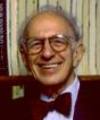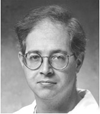We have, in the next place, to treat of Memory and Remembering, considering its nature, its cause, and the part of the soul to which this experience, as well as that of Recollecting, belongs. -Aristotle 350 BC
The clinical Anesthesiologist's interest in memory and its formation is that of a lmberjack to the forest. Anesthesiologists are clear-cutters, ad not typically too engaged in the niceties of the eco-system. In this case we might reasonably be forgiven, since the failure to abolish memory during a general anesthetic is at least a therapeutic failure and at worst, a terrible (actionable) trauma for the patient. Fortunately for us, memory formation/consolidation is eliminated far more easily than movement, which means that the anesthetic depth (related to the concentration of anesthetic) required to keep the patient "still for the knife" is much greater than the concentration required to interrupt memory formation. So far, so good. An interesting digression; movement during surgery can be initiated from the spinal cord in the absence of any brain activity. (Think of A chicken running around its head cut off; well, maybe don't...) We know this from experiments involving isolated head and body perfusion experiments, (not human!) where the body and the head are separately anesthetized. So when the surgeon yells "the patient is awake," the wise anesthesiologist knows that non-purposeful movement under anesthesia does not imply awareness, (but certainly doesn't preclude it...)
Of all animal traits, the three most philosophically intriguing are
awareness, consciousness and memory. Of these, memory is certainly more derivative;
Invertebrate worms demonstrate memory (they can learn) without any
sense that they are conscious or aware. The taxonomies of memory,
while being the subject of heated intellectual conflict, all seem
rather comfortable, even intuitive, to the casual spectator. Memory is
most superficially parsed into short-term and long-term, which we know
have different physiological mechanisms (we know this in great measure
due to the work of Dr Eric Kandel, which won him the Nobel). When you
remember a phone number long enough to dial it, you are using short
term memory. This involves chemical changes in synapses. If you
remember your home address and telephone number from last year, you are
using long term memory. That involves changes in synaptic connections.
Long term memory gets sliced and diced lots of different ways, based
mostly on our human classification of cognitive function. Explicit
memory is memory which is subject to conscious recall (like the name of
your high school sweetheart, or your anniversary). Implicit memory is
not (for instance, riding a bicycle, recognizing a face or voice).
Explicit memories are further sub-divided along various functional lines; intellectual memories, memories of events, etc, etc. WIkipedia has an unusually good introduction to the science of memory. Here also, is a link to a video introductory lecture on the neurobiology
of memory from the MIT Distributed Intelligence project: http://mitworld.mit.edu/stream/146/
him the Nobel). When you
remember a phone number long enough to dial it, you are using short
term memory. This involves chemical changes in synapses. If you
remember your home address and telephone number from last year, you are
using long term memory. That involves changes in synaptic connections.
Long term memory gets sliced and diced lots of different ways, based
mostly on our human classification of cognitive function. Explicit
memory is memory which is subject to conscious recall (like the name of
your high school sweetheart, or your anniversary). Implicit memory is
not (for instance, riding a bicycle, recognizing a face or voice).
Explicit memories are further sub-divided along various functional lines; intellectual memories, memories of events, etc, etc. WIkipedia has an unusually good introduction to the science of memory. Here also, is a link to a video introductory lecture on the neurobiology
of memory from the MIT Distributed Intelligence project: http://mitworld.mit.edu/stream/146/
 So, before I digressed, I was celebrating anesthesia's good fortune in
the coincidence of the greater sensitivity of memory processes to
anesthetics than to movement. But, like all good fortune, there is a fly
in that ointment; blow dart poison. You know...Curare. Pharmacologic
paralysis. The story of drug paralysis is one for another day, but the
practical consequence of the necessary use of paralysis is that we lose
our first, best "picket" defense against memory; movement.
Pharmacologic paralysis acts at the nerve/muscle boundary, blocking
motor nerve impulses from resulting in their usual muscle contraction.
A person who is pharmacologically paralyzed may therefore be wide
awake and unable to breath or signal that they are aware.
So, before I digressed, I was celebrating anesthesia's good fortune in
the coincidence of the greater sensitivity of memory processes to
anesthetics than to movement. But, like all good fortune, there is a fly
in that ointment; blow dart poison. You know...Curare. Pharmacologic
paralysis. The story of drug paralysis is one for another day, but the
practical consequence of the necessary use of paralysis is that we lose
our first, best "picket" defense against memory; movement.
Pharmacologic paralysis acts at the nerve/muscle boundary, blocking
motor nerve impulses from resulting in their usual muscle contraction.
A person who is pharmacologically paralyzed may therefore be wide
awake and unable to breath or signal that they are aware.
Q: Does a dog have Buddha nature?
A: Mu
-Zen Koan
The close readers amongst you might have noticed that, in the first line of the last paragraph, I didn't say awareness or consciousness; I said memory. An interesting philosophical (and legal?) distinction involves the difference between immediate awareness of a painful event like surgery, and memory for that experience. One could actually go further, and distinguish between awareness and consciousness, the latter generally taken to imply SELF-awareness. From an observer perspective, if the patient can't report a subjective experience because they didn't consolidate memory of it, then did the event "occur" for them? If awareness is like alertness, then drug induced sedation diminishes awareness, but not necessarily consciousness, until lack of awareness and consequent depression of consciousness merge into the state of unconsciousness or hypnosis. Intuitively, an animal can be aware without necessarily being conscious, if we define consciousness as including a knowledge of self. Likewise, while awareness might be imagined to exist without effective memory retrieval, I doubt that consciousness (as it's defined here) can exist without access to memory. As it so happens, although drug-induced sedation to the point of unconsciousness extinguishes explicit memory formation, the two are apparently independent neurological functions; there are differences in pharmacologic potency for sedation versus amnesia between different drugs. For instance, lorazepam is a powerful amnestic, chlorpromazine is not, at equally sedating doses. Narcotics are ineffective amnestics.
There is a saying as old as anesthesia; "If you can't get anesthesia, amnesia will do."This was most dramatically illustrated in the last-generation practice of "anesthetizing" neonates with a light narcotic dose and pharmacologic paralysis for major surgery, which almost certainly would not abolish awareness. (That's another one of those things that seems wildly improbable and inappropriate in retrospect; a different post for a different day...) After all, the patients never complained, so what's the problem? It's actually not such a reach considering the birth trauma undergone by the patient just hours or days earlier, which was a frequently cited rationale for the non-anesthetic. I was the product of a natural delivery, and I would elect to come into the world the same way given the choice; I have no explicit recollection...
When might an anesthesiologist not be able to establish anesthesia? Well, trauma for one. Anesthesia has the inconvenient characteristic of depressing heart function; not a good thing when the patient is already in life threatening shock from blood loss, heart failure or infection. Another is emergency cesarean section to save a distressed baby; further burdening the baby with a big anesthesia dose transferred across the placenta from the mom is undesirable, and the tempo of intervention does not allow for the leisurely placement of a regional block. In these situations we tend to turn to drugs that are more potent amnestics. Loading up exsanguinating traumas with lorazepam and scopolamine prior to paralysis was the standard technique when I was younger, and we didn't have noteworthy recall amongst the survivors.
The current monitor-surrogate for memory in the pharmacologically paralyzed patient is awareness, and its EEG (electro encephalographic) correlate, which relies on two assumptions; one reasonably well demonstrated, the other still being investigated. The first is that anesthetic induced unconsciousness of sufficient depth obliterates meaningful (explicit) memory deposition. The second is that a "black-box" EEG processor can accurately and reliably predict unconsciousness and the amnesia that it engenders. The black-box processor (actually, they are gray) is called a BIS monitor, and it works by generating a number from 0 to 100 which is something like an implied percentage of full consciousness (they would never claim this, however.) That number is generated by a proprietary algorithm based on analysis of an EEG channel. The company that manufactures the BIS, Aspect Medical, alienated anesthesiologists because its device was "fear" marketed to the public (who have a natural concern of remembering being awake during painful surgery) prior to general acceptance as a validated tool by the intellectual anesthesia community. Blow back from this tactic delayed general acceptance of the device for a number of years. I happen to like the machine, while being aware of its shortcomings; to the plus, it is non-invasive (no needles) and it's index reasonably correlates with my sense of what an un-paralyzed patient's depth of anesthesia seems to be; and my "sense" has been calibrated over thirty years of administering anesthesia. The processing takes place on prior epochs of data, so data always trails a few seconds, making it less useful during rapid changes in depth of anesthesia. As well, certain states known to be associated with amnesia (i.e., etomidate anesthesia) do not have accurate BIS correlation. In general, the shortcomings of the machine are not a significant deterrent to my regular use.
Since the beginning of our conscious existence, our consciousness has been the object of reverence and fascination; we have always thought about the things we think about, and how we do so. We are now on the verge of understanding how we think. It is human nature to take for granted what is understood; it's as if the act of explaining robs the mystery from a thing, the mystery being where we assign the beauty. Will our scientific understanding of what it is to be human have the paradoxical effect of dehumanizing us; of undermining what it means to be human? Francis Crick, (the co-recipient, with Watson, of the Nobel for elucidating DNA as the mechanism of transmission of genetic information fifty years ago), in his 1996 book, "The Astonishing Hypothesis" wrote,
" You, your joys and your sorrows, your memories and your ambitions, your sense of personal identity and free will, are in fact no more than the behavior of a vast assembly of nerve cells and their associated molecules."
I believe this to be true. But I am also immediately reminded of the beautiful first question of the Westminster catechism:
Westminster catechism:
Q. 1. What is the chief end of man?
A. Man’s chief end is to glorify God, and to enjoy him forever.
or, as Robert Hunter (Grateful Dead) said, paraphrasing the 14th century Buddhist teacher, Longchempa,
"wake up to find out that you are the eyes of the world."
Now that's soul, no matter how you explain it...
 Mitch Keamy is an anesthesiologist in Las Vegas Nevada
Mitch Keamy is an anesthesiologist in Las Vegas Nevada
 Andy Kofke is a Professor of Neuro-anesthesiology and Critical Care at the University of Pennslvania
Andy Kofke is a Professor of Neuro-anesthesiology and Critical Care at the University of Pennslvania
 Mike O'Connor is Professor of Anesthesiology and Critical Care at the University of Chicago
Mike O'Connor is Professor of Anesthesiology and Critical Care at the University of Chicago
 Rob Dean is a cardiac anesthesiologist in Grand Rapids Michigan, with extensive experience in O.R. administration.
Rob Dean is a cardiac anesthesiologist in Grand Rapids Michigan, with extensive experience in O.R. administration.
This was a very insightful post, I've read a couple of your posts and they are very interesting and enjoyable to read, and at the same time offer a great change of pace to the medical school humdrum.
Posted by: Cory | November 15, 2023 at 03:07 PM
Thanks for your kind words...
Posted by: mkeamy | November 16, 2023 at 01:06 PM
How would you compare effects, both long-term and short-term of ether, as was used when I was a child (three operations), and today's anesthetics? As a child I recall the horrible smell of ether and waking up vomiting. Last year I fell and broke my hip. When I woke after surgery I just felt tired and very sleepy, but no nausea or ill-feeling. I was amazed and gratified.
Posted by: valleystorm | December 16, 2023 at 10:41 PM
Today's inhalation anesthetics are 4 generations newer pharmacology than ether; they have been designed for faster onset/offset (less fat soluble) less nausea, less organ system (kidney/liver) damage, and non-explosive. A remarkable improvement over 45 years. I'm glad (and not surprised) that your experience was better. Thanks for stopping by.
Mitch
Posted by: Mitch Keamy | December 17, 2023 at 11:37 AM
A friend went into surgery and had trouble coming around...here we are ten days later and at least he seems to recognize us. He still can not articulate, but he appears to be listening to the conversations around him and obeying some commands. The rest of the time, he doesn't participate in anything going on around him...or is sleeping again...which is most of the time. Now we are told to find a resident medical facility for long term care because there has been undetermined brain damage. We're not getting much information other than "I don't know" from the doctor. So, I'd like to read up on patients who don't come around... they are giving him a week longer in the hospital. I'd like to know what his chances are. I know no one can tell us what to expect.... but these roads have surely been traveled by other folks and I'd like to know what they experienced. Could you point me to some literature or patient stories? I would like to learn a little more than I know now...which is nothing.
Posted by: Karin Taylor | January 23, 2024 at 07:47 PM
This was a very postive article is amazing that you can display the medical profession from that perspective
Posted by: computer screen | May 03, 2024 at 04:15 PM